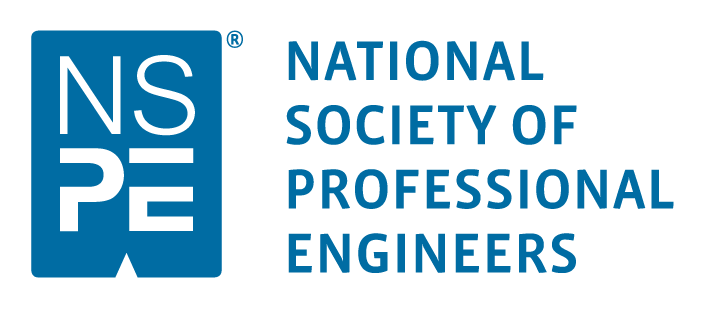Mistakes to Avoid in Your Transition Study
A project’s transition phase is the closing of construction activities and the point where developers transfer control of the facility to the owner’s association. It encompasses the activities necessary for the turnover of the property. This includes the resolution of all incomplete items and the commissioning of a transition study.
Before the transition, the New Jersey developer must meet specific contract conditions to prove that the project is ready for operation. Several verifications are necessary to check that all of its systems and equipment are functioning as intended and within the efficient tolerance limits.
A transition study New Jersey is conducted to check whether the developer has met all of the contractual obligations and the governing body’s expectations. It involves a review of the blueprints and a walkthrough of the constructed property, and it can confirm whether the structure is built according to design drawings and complies with building codes.
Moreover, an engineer will inspect the building to see if there are any deficiencies due to poor workmanship. Generally, the inspection will cover the facade, building envelope, HVAC, structural, mechanical, electrical, and life safety systems. If there are defects, they will recommend the actions necessary to correct them and estimate the repair or replacement costs.
The NJ transition study provides critical information that the community association can use to decide how to move forward with the transition. Mishandling the transition study might lead to failure to detect significant weaknesses in the property. Knowing what mistakes to avoid will help execute the transition study effectively and efficiently.
Hiring Unqualified Professionals
The association’s board, which may have little to no knowledge of how the structures and upgrades are built, is given the repair and maintenance duty upon turnover. However, they might be ill-equipped to decide on maintenance and repair, including setting a sufficient budget, because they have minimal understanding of the building features, renovations, and regulatory compliance. This highlights the necessity for the board to hire engineers to provide expert insights and enable them to make reasonable judgments on maintenance and repair.
Hiring unqualified personnel for the transition study can be counterproductive and costly. The board should commission a professional engineer with a good record and years of positive experience in this line of work. This will provide confidence that the review is thorough and the recommendations are practical and beneficial.
Late Commissioning of Transition Study
Independent professionals may be required to conduct special reviews and provide expert opinions on certain building aspects. This is to verify that the critical elements match specific standards. However, these activities can unexpectedly extend the duration of the transition period. This is not ideal, especially if property operations are expected to commence by a particular date. To avoid unwarranted stress among stakeholders due to delays, the requesting party must be realistic about their transition study timeframe and target beginning dates.
Delays can also cause issues in the negotiations between the developer and the association. Ideally, the transition study should be conducted while the developers are still on site so it would be easy for them to address detected deficiencies. If the transition study is conducted too late, repairs or replacements that should have been the builder’s responsibility might not be considered in the closing conference. And costs that the construction company should have shouldered might be charged to the association.
Not Coordinating With Stakeholders
Stakeholders in a project closeout often include the association’s board, project administrator, contractors, accountant, and the engineer handling the transition study. Coordinating with stakeholders keeps all key parties aware of the progress of activities. Suppose that the allotted period for addressing detected concerns is 30 days after receiving the transition study report, and certain conditions prevent their completion. Depending on the contract, the association’s board can deduct costs from the contractor’s payment for every deferred work item. This creates accountability for the builders to fulfill their contractual obligations.
Lacking Documentation
After the review of essential documents and on-site observation, the engineers will produce a report with their findings on the property’s condition. This will detail the deviations of the actual constructed building from the design specifications. It will also discuss uncovered deficiencies and their possible causes, as well as non-compliance to performance and property standards.
These findings must be backed by sufficient documentation. So, the staff handling the procedure must collect as many relevant documents, pictures, and notes as possible to support their conclusions. Insufficient documentation can cause the parties to make costly and damaging decisions. It can also lead to unnecessary expenses, delays, miscommunication, or reworks.
It is ideal to have a checklist for all key documentation items to prevent this. Doing this makes sure that no detail is missed. This is important because a complete report will also serve as a reference for operations, maintenance, repairs, and renovations.
Conclusion
The transition study plays a significant part in the turnover of the property’s control and responsibilities from the builders to the owner’s association. It has the authority to drive the property developer into making the required repairs before the transition. It can also be used as evidence in court to force the developer to pay for the needed repairs if they decline to do them.
If not properly executed, the transition study can add problems instead of being helpful. Knowing the common transition study mistakes will help prevent doing them. Additionally, commissioning the right engineering firm will also provide a high level of confidence in the output of the transition study.
Lockatong Engineering provides a transition study NJ that can help the association make more informed and assured decisions. Professionals at Lockatong Engineering have the knowledge, experience, and professional objectivity necessary to provide an independent opinion on the property’s condition and code compliance. The firm also provides a reserve study, a complementary service to the transition study.
Contact us today to learn more about our New Jersey transition study and other services.








